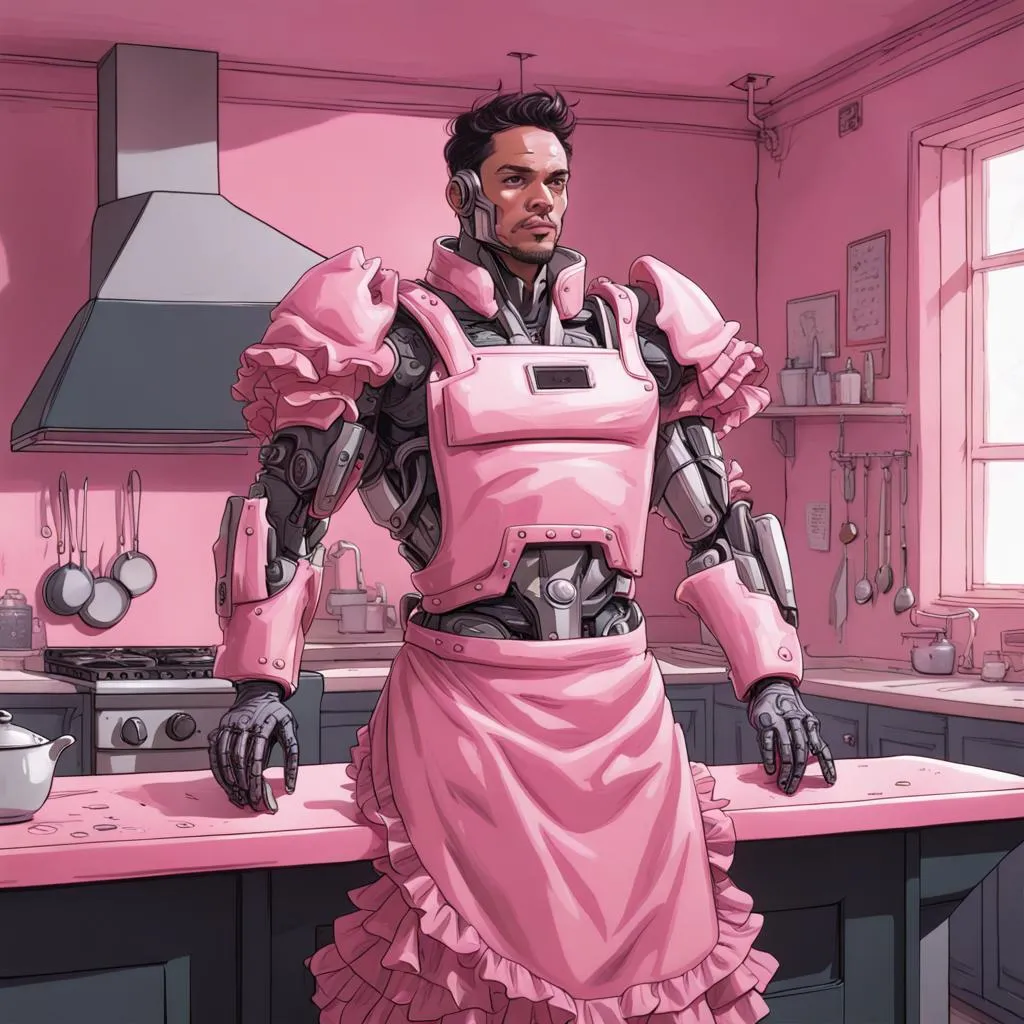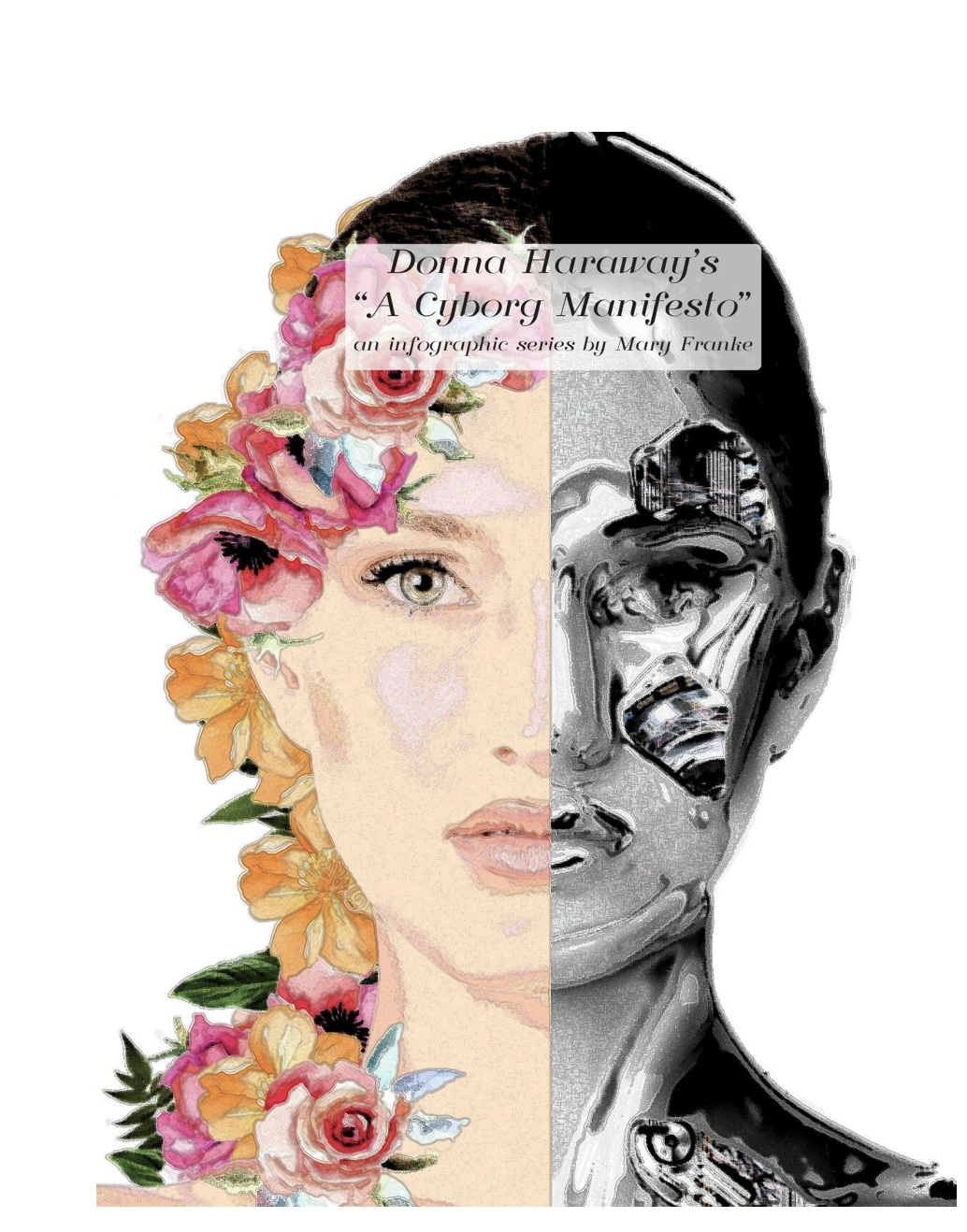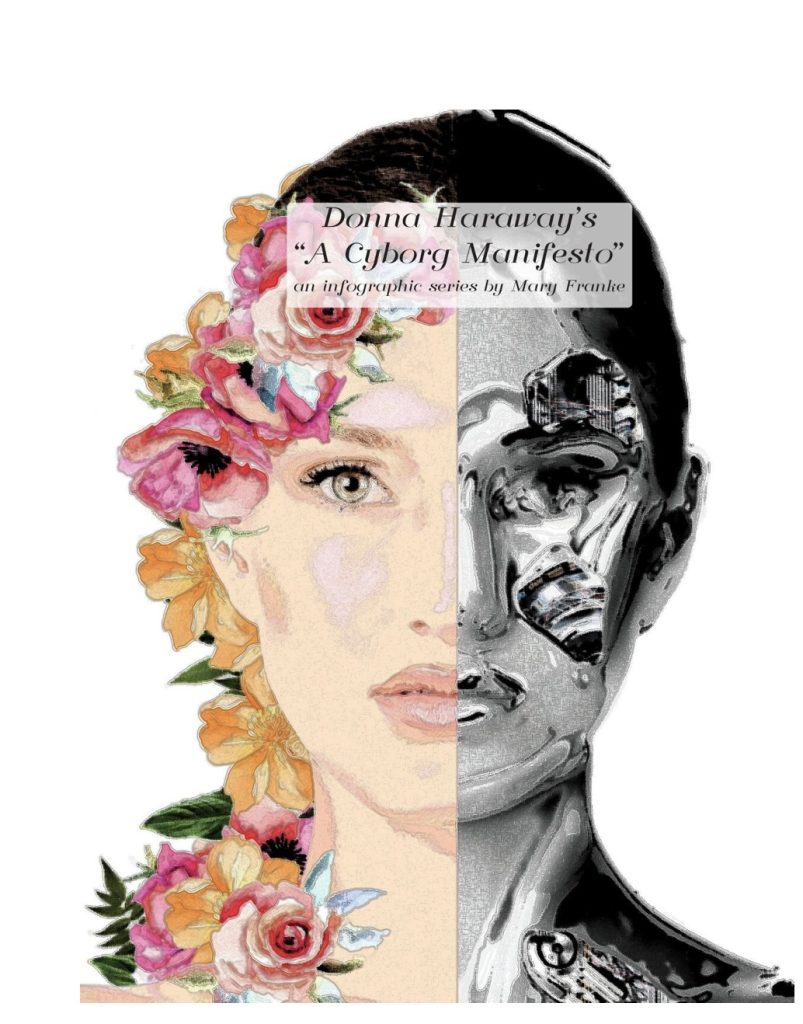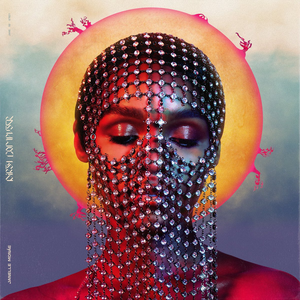
In 1985, Donna Haraway released her Cyborg Manifesto, which displayed her vision on identity that is beyond traditional boundaries of gender, class, and biology. For Haraway, the cyborg was a symbol of resistance to social structures that have the purpose of defining who we are based on categories. Fast forward to 2018, Janelle Monáe’s Dirty Computer explores similar themes. Janelle Monáe’s song paints a picture of a future where people who don’t conform to societal norms are persecuted. In Dirty Computer, Monáe creates an image where individual expression is a form of rebellion. Together, Haraway’s manifesto and Monáe’s album imagine a future where identity isn’t structured and where standing up to conformity is seen a survival.
Cyborgs: Breaking Down Boundaries
The cyborg described by Haraway does not fit perfectly into categories like: human, machine, male or female. For Haraway, the cyborg is a metaphor for how identity is not easily boxed into one thing. Identity is something that exists in a fluid space, always shifting, and doesn’t stick to the binaries of society. This same concept is exactly what Janelle Monáe explores in Dirty Computer. In song like “PYNK,” Monáe celebrates womanhood but does so in a way that doesn’t confine it to biology or societal definitions. The lyric “Pink, as we all go insane” suggests shared experiences among women that no woman will perfectly fit societies standards and that it is fine to reject rigid labels. Similarly, in “I Like That,” Monáe embraces her multifaceted identity, showing us that it’s okay to exist outside the lines society draws for us.

Post-Gender Dreams and Dystopian Realities
A major concept in Cyborg Manifesto is the rejection of essentialism—the idea that who we are is defined by our biology. Haraway imagines a post-gender world where identity is not bound to traditional categories. The dream of fluidity is also central to Dirty Computer. Monáe’s album is a reflection of the real world, where gender norms and expectations can be suffocating. Those who don’t conform are labeled as “dirty,” but rather than run from that label, Monáe’s embraces it. The album becomes a celebration of self-expression and defiance against a system that tries to erase non-conforming individuals. Both Haraway and Monáe suggest that embracing our complex, hybrid identities is where true change lies.
Surveillance, Control, and the Fight for Autonomy
In both of these works, there’s a focus on how society uses surveillance and control to police bodies. Haraway’s cyborg exists outside of these systems and resists the forces of patriarch, capitalism, and colonialism that try to categorize and exploit people. Similarly, Monáe’s “dirty computers” are under constant surveillance, their identities erased unless they submit to societal expectations. However, both Haraway and Monáe see hope in resistance. Haraway’s cyborg resists being placed into any category while Monáe refuses to be “cleaned,” ultimately fighting back against a system that seeks to erase individuality. Claiming the parts of ourselves that don’t fit neatly into society’s boxes, is a form of defiance that both Haraway and Monáe see as something needed for the possibility of a better future.

Conclusion: Embracing the Hybrid
At first glance, Cyborg Manifesto and Dirty Computer might seem worlds apart—one is an academic essay from the 80s, and the other is a modern concept album. Both of these works are connected by their explorations of identity, fluidity, and resistance. Haraway’s cyborg represents the breaking down of boundaries between categories like human and machine, male and female, while Monáe’s album embodies the same fight for individuality in a world that demands for conformity. Together, they show us that the future does not belong to those who fit neatly into categories, but to those who resist and embrace the complexity of who they are.
Supplemental Media:
- Music Video: https://www.youtube.com/watch?v=PaYvlVR_BEc
- Link to Haraway’s Cyborg Manifesto: https://www.youtube.com/watch?v=XiF9SBrzWoU
- Timeline Graphic: https://medium.com/@opaka/the-history-of-cyborgs-in-pop-culture-and-how-theyve-been-represented-over-the-years-d1467e929cf3





